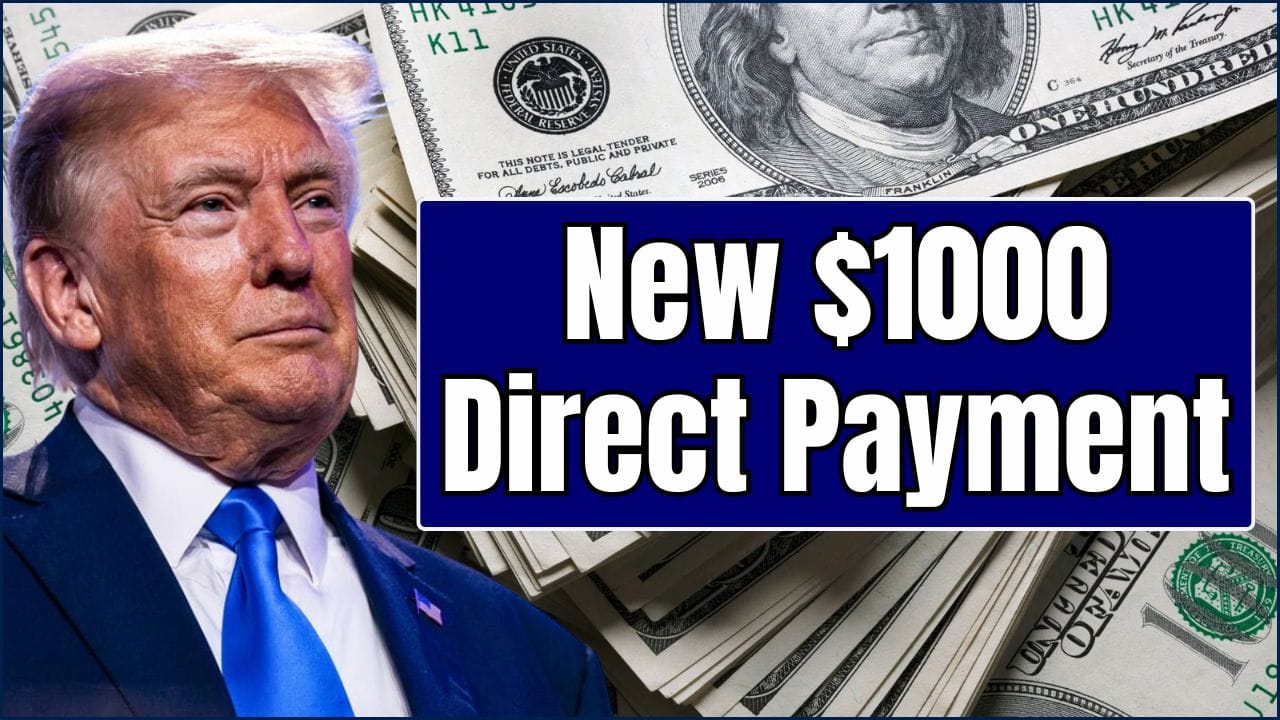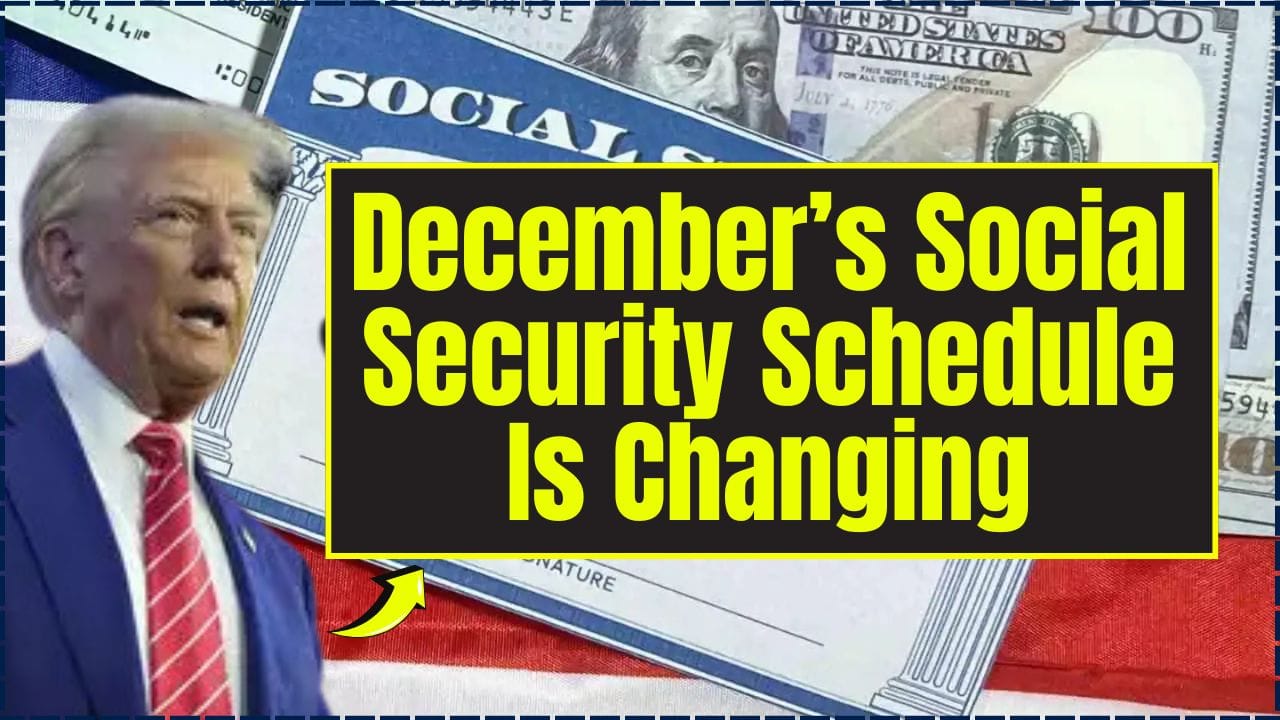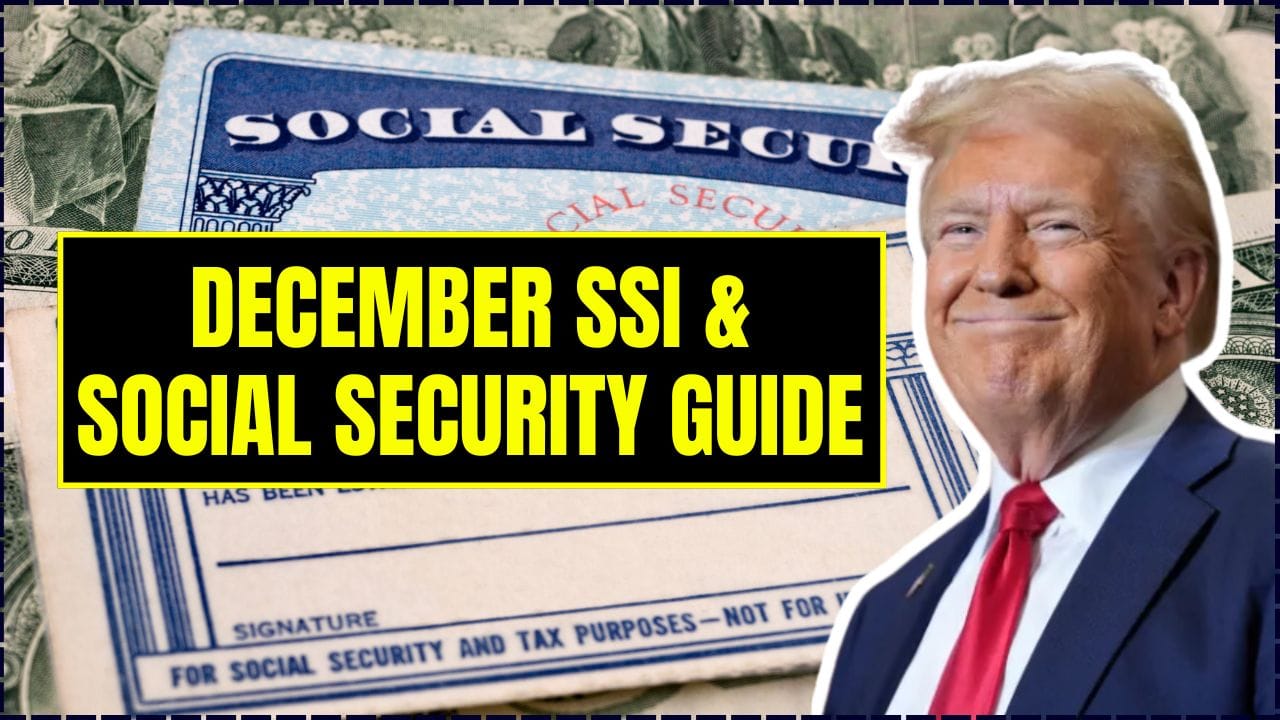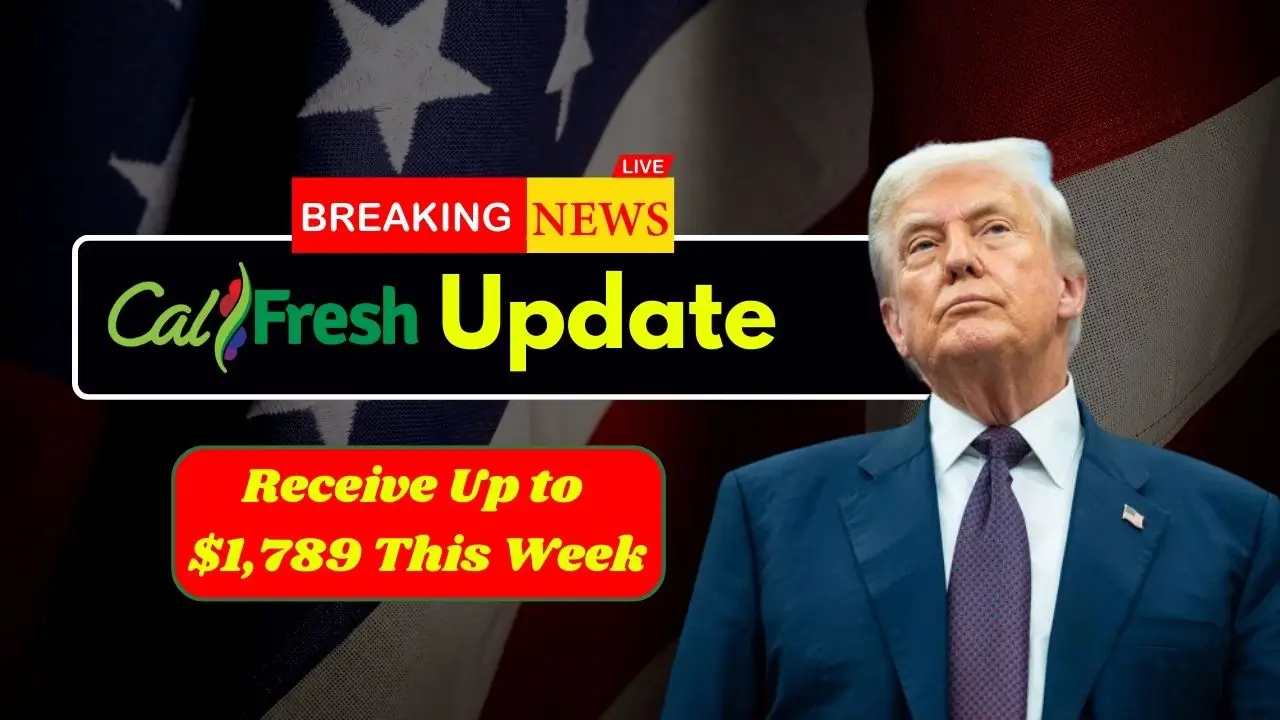US study visa application – The dream of studying in the United States is a powerful one, drawing thousands of aspiring students each year to its world-class universities. With the recent reopening of US study visa application windows, a fresh wave of excitement and opportunity has swept across the globe. As a seasoned advisor who has seen countless students successfully navigate this path, I understand the mix of anticipation and apprehension you might be feeling. The good news is, with the right information and a meticulous approach, securing your US study visa application is entirely within reach.
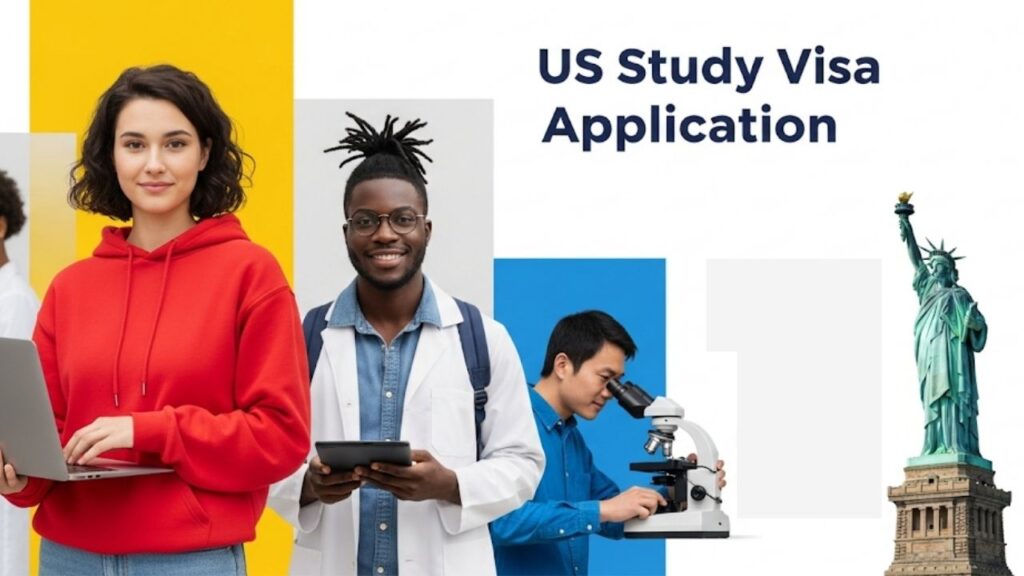
This comprehensive guide is designed to empower you with all the actionable knowledge you need. We’ll delve into the precise documents required, offer crucial tips for compilation, and ensure you’re fully prepared for every step, including that all-important interview.
The Reopened Door: What You Need to Know Now
On June 18, 2025, the U.S. State Department instructed all diplomatic posts abroad to resume scheduling interviews for F, M, and J visa applicants, ending a pause that had caused considerable concern among international students. This reopening, while welcome, comes with an important new policy: enhanced social media and online screening for all student visa applicants. This means your digital footprint will be meticulously reviewed, making comprehensive and accurate documentation more critical than ever.
US Study Visa Application
| Key Fact | Detail/Statistic | Source |
| Visa Processing Resumed | As of June 18, 2025, U.S. Embassies/Consulates are scheduling F, M, and J visa interviews. | ICEF Monitor |
| Social Media Screening | All applicants are subject to enhanced social media and online screening as a mandatory part of the application. | DAAD Scholarship.com |
| SEVIS Fee (F-1/M-1) | Currently $350 (confirm current fee before payment). | Indiana University |
| DS-160 Application Fee | Currently $185 for most student visas. | INTO Study |
The reopening of US study visa applications marks a pivotal moment for international students. While the process requires thorough preparation and careful attention to detail, it is by no means insurmountable. By meticulously gathering your documents, understanding the new screening procedures, and preparing confidently for your interview, you significantly increase your chances of success. Remember, every document you provide tells a part of your unique story. Present it clearly, honestly, and with confidence. Your American educational journey awaits! Start preparing your US study visa application today and take that exciting step toward your future.
Your Comprehensive Document Checklist for a US Study Visa Application
The success of your US study visa application hinges on the completeness and accuracy of your documentation. Think of your documents as a story, each piece building a compelling narrative about your genuine intent to study, your financial capability, and your strong ties to your home country.
Foundational Documents: The Absolute Essentials
These are the backbone of your application, and you absolutely cannot proceed without them.
- Valid Passport: Your passport must be valid for at least six months beyond your intended stay in the U.S. If you have any previous passports, bring those too.
- Form I-20, Certificate of Eligibility for Nonimmigrant Student Status: This crucial document is issued by your Student and Exchange Visitor Program (SEVP)-approved U.S. institution after you’ve been admitted and proven your financial capability. It details your program, costs, and SEVIS ID. Ensure both you and a school official have signed it.
- DS-160 Confirmation Page: This is the confirmation page with a barcode that you receive after completing and submitting the online Nonimmigrant Visa Application (DS-160). It’s essential for your interview.
- SEVIS I-901 Fee Payment Receipt: Proof that you’ve paid the Student and Exchange Visitor Information System (SEVIS) fee. This fee helps fund the system that tracks international students.4
- Visa Application (MRV) Fee Payment Receipt: Confirmation of payment for the non-refundable Machine Readable Visa (MRV) fee.
- Visa Interview Appointment Confirmation Letter: Proof of your scheduled interview at the U.S. Embassy or Consulate.
- Passport-Sized Photograph: One recent (within 6 months) color photograph (5 cm x 5 cm) meeting U.S. visa photo requirements. Even though you upload it with your DS-160, bring a physical copy.
Academic Credentials: Showcasing Your Dedication
These documents demonstrate your academic preparedness and genuine desire to pursue studies in the U.S.
- Official Academic Transcripts: These should be from all previously attended educational institutions, detailing your courses, grades, and degrees.
- Diplomas, Degrees, or Certificates: Original copies or notarized copies of your educational qualifications.
- Standardized Test Scores: Official score reports for tests like TOEFL, IELTS (proving English proficiency), SAT, ACT, GRE, or GMAT, as required by your chosen university.
- Acceptance Letter from a SEVP-Approved School: This is your official letter of admission from the U.S. institution.
- Curriculum Vitae (CV) or Resume: An up-to-date document outlining your academic and professional history.
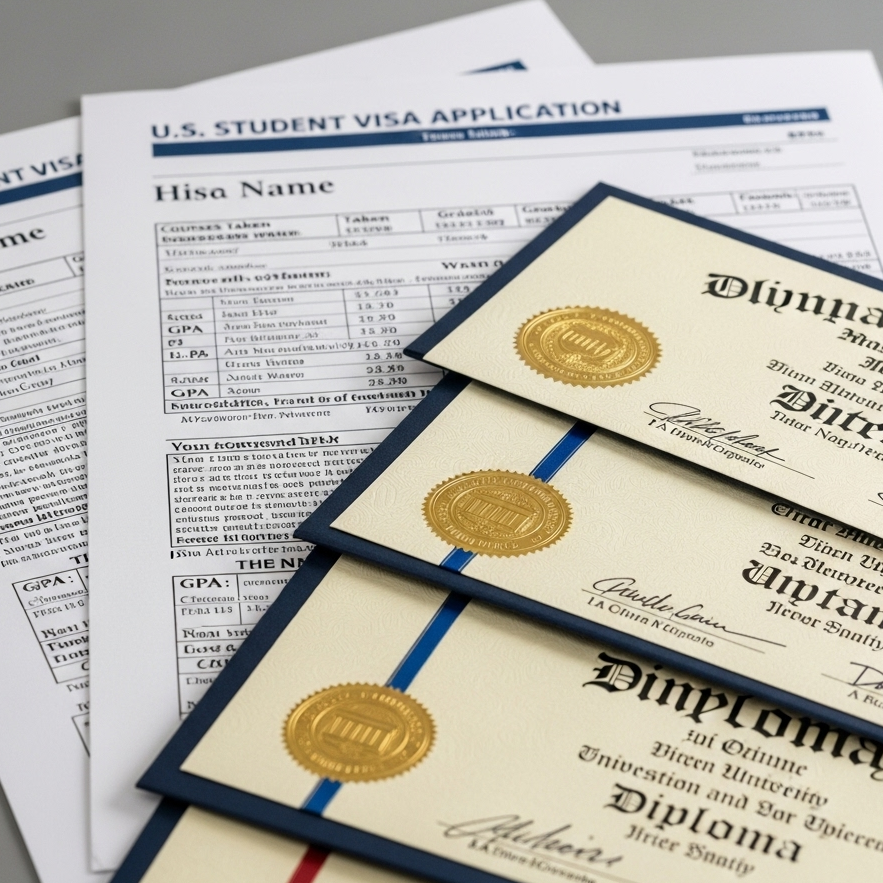
Financial Documentation: Proving Your Capability
One of the most critical aspects of your US study visa application is demonstrating that you have sufficient funds to cover your tuition, living expenses, and travel for at least your first year of study, without needing to work illegally. In my experience advising students, one common hurdle is insufficient or unclear financial documentation.
- Original Bank Statements: These should be recent (ideally covering the last three to six months) from you or your sponsor, clearly showing the required funds. They must be on official bank letterhead with proper stamps and signatures.
- Affidavit of Support (e.g., Form I-134): If you have a sponsor (parent, relative, or other individual), they must provide an affidavit of support. This document officially states their commitment to financially support you.
- Sponsor’s Financial Documents: This includes recent bank statements, tax returns, and an employment letter confirming their income. A letter from your sponsor explaining their relationship to you and their commitment to fund your studies is also highly recommended.
- Scholarship Letters or Financial Aid Documents: If you’ve received any scholarships, grants, or financial aid from your university or another organization, provide official letters as proof.
- Proof of Property Ownership/Other Assets: While not always mandatory, demonstrating significant assets in your home country can strengthen your financial standing.
- Loan Sanction Letters: If you have secured an education loan, provide the official sanction letter from the bank.
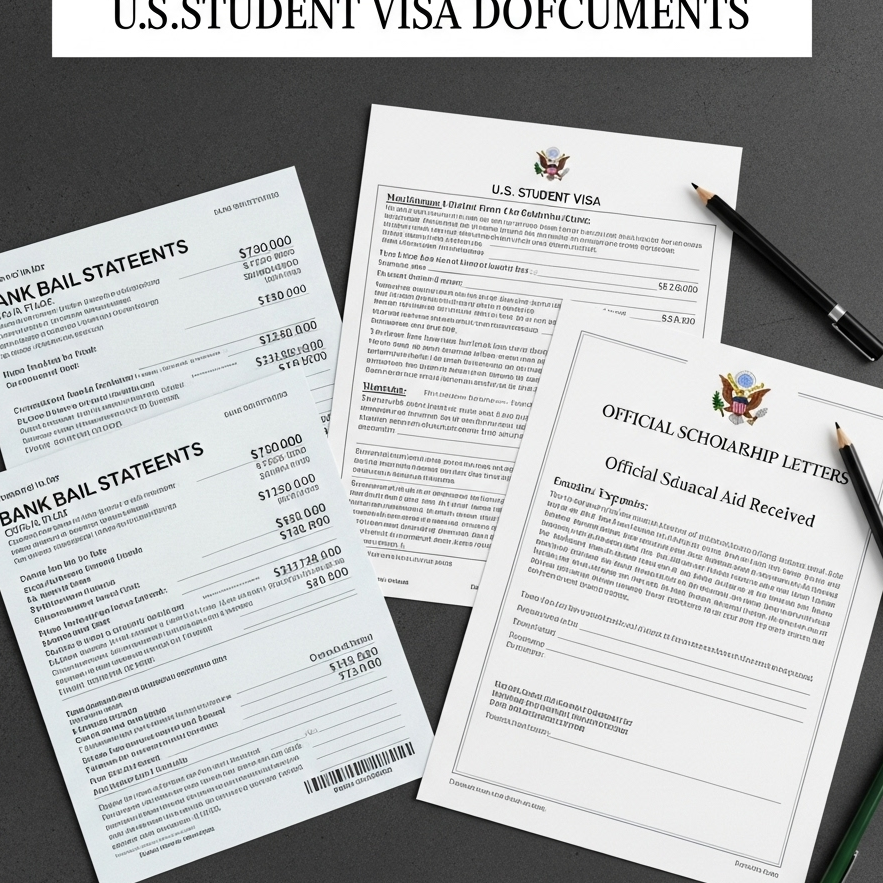
Evidence of Ties to Home Country: Demonstrating Non-Immigrant Intent
U.S. law assumes all non-immigrant visa applicants intend to immigrate. You must convince the consular officer that you have compelling reasons to return to your home country after completing your studies. I’ve seen many successful applicants focus on articulating strong ties that bind them to their homeland.
- Family Ties: Birth certificates, marriage certificates, and family photographs can help demonstrate strong family connections.
- Property Ownership: Proof of ownership of land, house, or other significant assets in your home country.
- Employment Letters/Job Offers: If applicable, a letter from a prospective employer in your home country indicating a job offer upon your return.
- Proof of Academic Enrollment/Future Plans: Documents showing ongoing enrollment in another program or clear plans for your career back home.
- Previous Travel History: A history of previous international travel where you returned to your home country can be beneficial.
Preparing for Your US Study Visa Interview
The visa interview is the final, and arguably most important, step in securing your US student visa. Be prepared to articulate your academic plans, reasons for choosing your specific university and program, how you will finance your education, and your clear post-graduation intentions to return to your home country.
- Practice English: Most interviews are conducted in English. Practice speaking about your academic and career goals.
- Be Concise and Honest: Consular officers are on a tight schedule. Provide clear, direct, and truthful answers.
- Speak for Yourself: Even if family members accompany you, the officer wants to hear from you.
- Know Your Program: Understand your chosen course of study, why you selected it, and how it aligns with your future career aspirations in your home country.
- Organize Your Documents: Have all your documents neatly organized and readily accessible.
Here’s a great resource that can help you prepare for common interview questions and build confidence:
Staying Updated: Official Channels
Always rely on official sources for the most current information. The landscape of visa regulations can change, so follow trusted channels.
Check out the official US Department of State’s X (formerly Twitter) account for updates:
Navigating Your UK Visa Journey: Insights from May/June 2025 Data
FAQ
Q1: How long does it take to get a US study visa after the interview?
The processing time for a US study visa can vary significantly depending on the embassy or consulate and the time of year. While some applicants receive their visa within days, others might wait for several weeks. It’s advisable to check the specific embassy or consulate website for estimated wait times. For example, as of April 25, 2025, the estimated wait time for an F, M, J visa interview at the Chennai consulate was 1.5 months, but this doesn’t include post-interview processing.
Q2: Can I apply for a US student visa without an I-20?
No, you cannot apply for a US study visa application without an I-20 form. The I-20 is a mandatory document issued by a SEVP-approved school, confirming your admission and outlining your program details and financial requirements. It’s a foundational requirement for your visa application.
Q3: What is the new social media screening for US student visas?
The U.S. State Department now requires enhanced social media and online screening for all student visa applicants. This means your digital footprint, including social media accounts, may be reviewed as a mandatory part of your visa application. The purpose is to identify any content that might raise concerns about your intent to abide by U.S. laws or your visa status.

